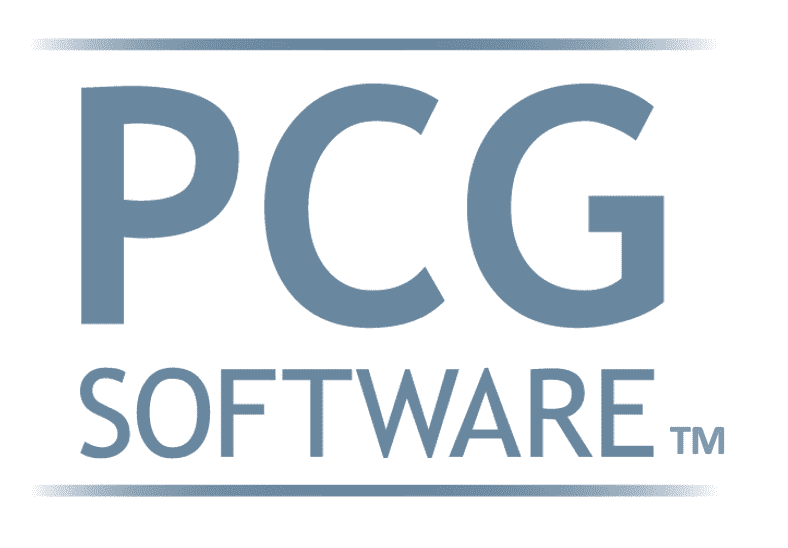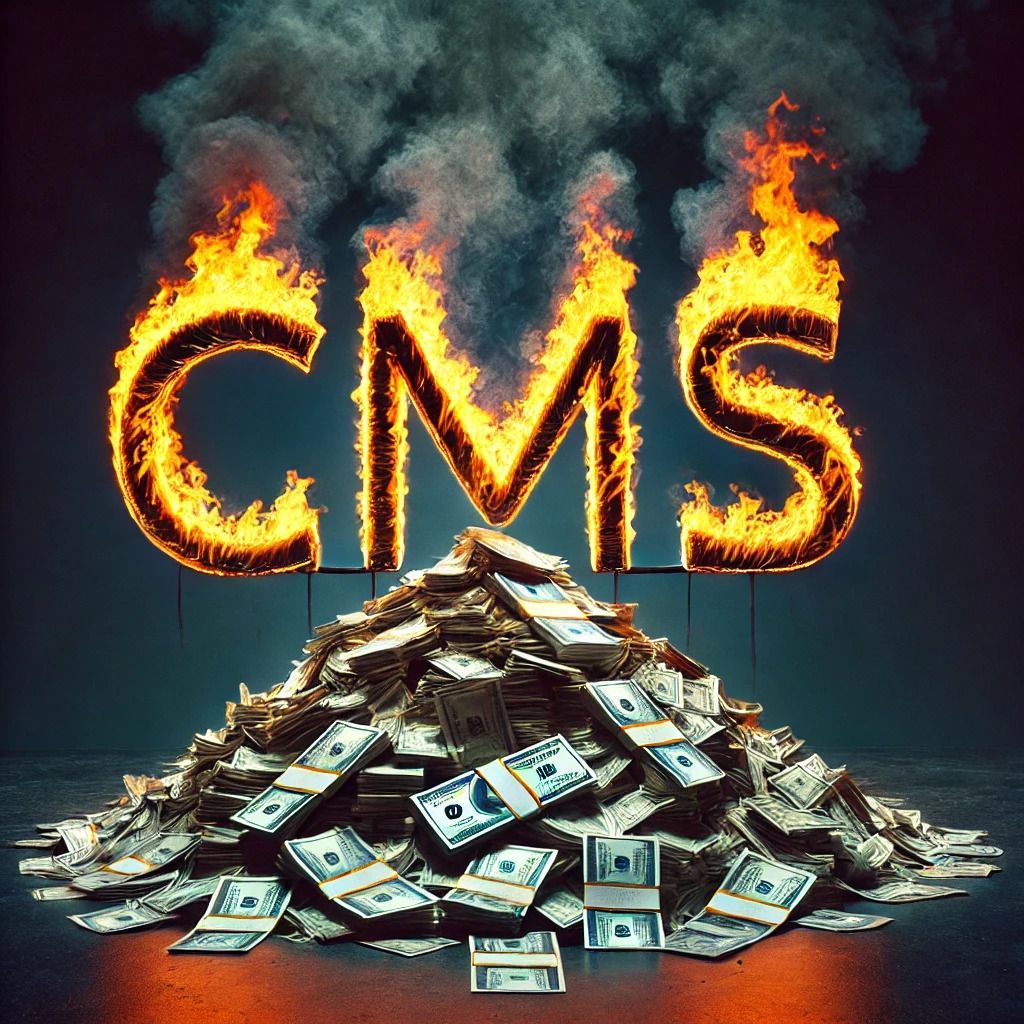What are CCI Edits
Summary:
In healthcare, various codes are used to identify procedures, services, and equipment for billing purposes. These codes are essential for ensuring that healthcare providers receive accurate reimbursement for the services they provide. However, there are situations where multiple codes are used for a single service or procedure, which can lead to billing errors and overpayments. To address this issue, the Centers for Medicare and Medicaid Services (CMS) developed the Correct Coding Initiative (CCI), which includes CCI edits. This article will describe what a CCI edit is, its history, and its impact on payers and medical clinics.
This article was updated on November 1, 2024.
CCI Edits Description
The CCI is a set of guidelines developed by CMS to prevent improper payments due to incorrect coding of services and procedures. The CCI edits are a set of rules that identify code combinations that should not be used together. These rules are based on clinical and coding guidelines and are regularly updated to reflect changes in medical practice.
There are two types of CCI edits: the mutually exclusive edit and the bundled edit. The mutually exclusive edit identifies two codes that cannot be billed together because they represent mutually exclusive services or procedures. For example, if a patient undergoes a knee replacement surgery, the codes for a knee arthroscopy and a knee arthroplasty cannot be billed together because they are mutually exclusive procedures.
The bundled edit identifies two codes that are usually billed together and should be submitted as a single code. For example, if a patient undergoes a colonoscopy with a biopsy, the codes for the colonoscopy and the biopsy should be bundled together and billed as a single code.
NCCI History and Adoption
The CCI was first introduced in 1996 as part of the Health Insurance Portability and Accountability Act (HIPAA). The purpose of the CCI was to prevent improper payments due to coding errors and fraud. Initially, the CCI only applied to Medicare claims, but it has since been adopted by many other payers.
Over the years, the CCI has undergone several revisions to reflect changes in medical practice and to address new coding challenges. For example, in 2011, CMS introduced modifier -59, which allows for the billing of procedures that are usually bundled together. The modifier is used to indicate that the procedure was separate and distinct from the other procedures performed on the same day.
The CCI has been successful in preventing improper payments and improving the accuracy of coding. According to CMS, the CCI edits have saved Medicare billions of dollars in improper payments since their introduction.
CCI Edits Impact on Payers
The CCI edits have a significant impact on payers, including Medicare, Medicaid, and private insurers. By preventing improper payments due to coding errors, the CCI helps to reduce healthcare costs and improve the accuracy of billing.
The larger the state’s Medicare and Medicaid population the greater impact CCI will have on it’s population, providers, and regional insurance groups.
However, the CCI edits can also create challenges for payers. For example, if a provider submits a claim with codes that violate a CCI edit, the claim may be denied or delayed. This can create additional administrative work for payers, who must review the claim and communicate with the provider to resolve any coding errors.
In addition, the CCI edits can be complex, and providers may not always understand how to apply them correctly. This can lead to disputes between payers and providers over denied claims and reimbursement rates.
CCI Edits Impact on Medical Clinics
The CCI edits also have a significant impact on medical clinics and other healthcare providers. By preventing improper payments, the CCI helps to ensure that providers receive accurate reimbursement for the services they provide. This, in turn, helps to support the financial stability of medical clinics and other healthcare organizations.
However, the CCI edits can also create challenges for providers. For example, providers must ensure that they are using the correct codes and that the codes they use comply with CCI rules. This can be time-consuming and require additional training for medical staff to ensure that they are familiar with the rules and guidelines.
The CCI edits can also create challenges for providers who offer a wide range of services. Providers must carefully review and analyze each code combination to ensure that they comply with CCI guidelines. This can be particularly challenging in cases where multiple procedures are performed during a single visit.
In addition, the CCI edits can impact the revenue of medical clinics and providers. If a claim is denied due to a CCI edit violation, the provider may lose revenue for the services provided. This can also create additional administrative work for the provider, who must review and resubmit the claim or work with the payer to resolve the issue.
Lastly, there is insufficient timely updates on CCI edits unless you have a direct link to CMS updates via cms.gov. It’s for all of these reasons that iVECoder Clinics, and Virtual AuthTech and Virtual Examiner for Payers, has enabled them remain compliant and avoid erroneous claims submissions from the Provider, and erroneous approvals and payments from the Payer side.
Overall, while the CCI edits are essential for preventing improper payments and ensuring accurate billing, they can create challenges for both payers and providers. To address these challenges, both payers and providers must work together to ensure that they understand and comply with the CCI guidelines.
How to Research the Latest CCI Edits
CMS will provide CCI Edit updates quarterly but unfortunately you won’t find them in your code books you bought back in October of the previous year. You’ll likely have a few choices to choose from to get updates and apply them in real time.
Subscribe to cms.gov newsletters and updates and then research at great lengths to understand the implications.
Consider an AI software that updates quarterly with the newest medical codes, like that of
iVECoder (clinics) or
Virtual Examiner (payers).
How AI Helps in Assessing CCI Edits
The use of AI in healthcare has transformed many aspects of the industry, including medical coding. AI-powered medical coding software solutions like iVECoder can help medical clinics review and accurately submit cleaner claims in regard to CCI edits. By automating the coding process and using advanced NLP and machine learning algorithms, medical clinics can ensure accurate and compliant coding, reducing the risk of claim denials, delays, and lost revenue. As the healthcare industry continues to evolve, AI-powered solutions like iVECoder will become increasingly important in ensuring accurate and timely medical coding.
The use of AI in healthcare has transformed many aspects of the industry, including claims processing and auditing. AI medical claims auditing software solutions like Virtual Examiner can help payers review and properly assess CCI edits, increasing efficiency, accuracy, and cost savings. By automating the auditing process and using advanced NLP and machine learning algorithms, payers can ensure timely compliance with CCI edit rules and identify potential FWA. As the healthcare industry continues to evolve, AI-powered solutions like Virtual Examiner will become increasingly important in ensuring accurate and compliant claims processing.
AI Software that Can Help with CCI Edits
Virtual Examiner is an AI-powered medical claims auditing solution that uses machine learning algorithms to analyze claims data and identify potential errors, discrepancies, or compliance issues. Virtual Examiner is designed to automate the claims auditing process, reducing the need for manual reviews and increasing the accuracy and efficiency of the auditing process.
Virtual Examiner uses advanced natural language processing (NLP) technology to interpret the claims data and identify any potential CCI edit violations. The software analyzes the claims data against the CCI edit rules, identifying any code combinations that violate the rules. The software then flags these violations for further review by the payer or their designated auditors.
Benefits of Virtual Examiner for CCI Edits Reviews
Virtual Examiner and other AI medical claims auditing software solutions can provide significant benefits for payers in reviewing and properly assessing CCI edits. Here are some of the main benefits:
- Increased Efficiency: CCI edits can be complex and time-consuming to review manually. By using AI-powered solutions like Virtual Examiner, payers can automate the auditing process, increasing the speed and efficiency of CCI edit reviews. This can help payers process claims faster, reducing the time it takes for providers to receive payment and improving the overall claims processing experience.
- Improved Accuracy: Manual reviews of CCI edits can be prone to errors and inconsistencies, which can lead to payment discrepancies and improper payments. By using AI-powered solutions like Virtual Examiner, payers can increase the accuracy and consistency of CCI edit reviews. The software is designed to identify potential violations with a high degree of accuracy, reducing the risk of errors and ensuring that payers are reviewing claims data in a consistent manner.
- Cost Savings: By automating the claims auditing process, payers can save significant costs associated with manual reviews. Manual reviews require significant resources, including personnel, time, and training. By using AI-powered solutions like Virtual Examiner, payers can reduce these costs and allocate resources to other areas of their business.
- Timely Compliance: The healthcare industry is constantly evolving, with new regulations and requirements introduced regularly. By using AI-powered solutions like Virtual Examiner, payers can stay up to date with the latest CCI edit rules and ensure timely compliance. The software can be updated regularly to reflect changes in medical practice and regulatory requirements, ensuring that payers are reviewing claims data in a compliant manner.
- Data Analytics: AI-powered solutions like Virtual Examiner can provide valuable insights into claims data. The software can analyze claims data to identify trends, patterns, and potential fraud, waste, and abuse (FWA). These insights can help payers identify areas of their business that require improvement and develop strategies to address any issues.
Medical Clinic AI CCI Edit Software
iVECoder is an AI-powered medical coding software solution that uses machine learning algorithms to analyze clinical documentation and assign appropriate codes to medical procedures and services. The software is designed to automate the coding process, reducing the need for manual coding and increasing the accuracy and efficiency of coding.
iVECoder uses advanced natural language processing (NLP) technology to interpret clinical documentation and identify potential CCI edit violations. The software analyzes the documentation against the CCI edit rules, identifying any code combinations that violate the rules. The software then flags these violations for review by the medical coder or their designated auditors.
Medical Clinic Benefits of iVECoder for CCI Edits
iVECoder and other AI medical coding software solutions can provide significant benefits for medical clinics in accurately submitting cleaner claims in regard to CCI edits. Here are some of the main benefits:
- Increased Efficiency: Medical coding can be complex and time-consuming to review manually. By using AI-powered solutions like iVECoder, medical clinics can automate the coding process, increasing the speed and efficiency of CCI edit reviews. This can help medical clinics process claims faster, reducing the time it takes to receive payment and improving the overall claims processing experience.
- Improved Accuracy: Manual coding reviews can be prone to errors and inconsistencies, which can lead to claim denials, delays, and lost revenue for medical clinics. By using AI-powered solutions like iVECoder, medical clinics can increase the accuracy and consistency of coding reviews. The software is designed to identify potential violations with a high degree of accuracy, reducing the risk of errors and ensuring that medical clinics are submitting claims data in a compliant manner.
- Cost Savings: By automating the coding process, medical clinics can save significant costs associated with manual coding. Manual coding requires significant resources, including personnel, time, and training. By using AI-powered solutions like iVECoder, medical clinics can reduce these costs and allocate resources to other areas of their business.
- Timely Compliance: The healthcare industry is constantly evolving, with new regulations and requirements introduced regularly. By using AI-powered solutions like iVECoder, medical clinics can stay up to date with the latest CCI edit rules and ensure timely compliance. The software can be updated regularly to reflect changes in medical practice and regulatory requirements, ensuring that medical clinics are submitting claims data in a compliant manner.
- Better Revenue Cycle Management: Accurate and timely coding is essential to revenue cycle management. By using AI-powered solutions like iVECoder, medical clinics can improve their revenue cycle management by reducing coding errors and increasing the speed of claim processing. This can help medical clinics maximize their revenue and reduce the risk of lost revenue due to coding errors or delays.
Summary of CCI Edits Impact and Possible Solutions
The Correct Coding Initiative (CCI) edits are a set of rules developed by CMS to prevent improper payments due to coding errors and fraud. The CCI edits are based on clinical and coding guidelines and are regularly updated to reflect changes in medical practice. The CCI edits have been successful in preventing improper payments and improving the accuracy of billing. However, they can also create challenges for payers and providers, including claim denials, administrative work, and revenue loss. By working together and understanding the CCI guidelines, payers and providers can ensure that they comply with the rules and improve the accuracy of billing.
The use of Artificial Intelligence (AI) in healthcare has revolutionized the industry, from clinical diagnosis to administrative functions like claims processing. One area where AI has shown significant promise is in medical claims auditing, which is the process of reviewing medical claims to ensure they are accurate and comply with regulatory requirements. Considering AI software for your at-risk healthcare organization or your medical clinic would never replace your position in claims submission, review, or approval, but rather help you navigate the ever-changing landscape of CCI Edits.
If you’re interested in more information on our AI Coding Solutions please email us at info@pcgsoftware.com
Quicklinks:
Will Schmidt joined PCG Software as their Chief Strategy Officer in November 2022. Prior to PCG, Schmidt lead TNH as their Sr. Vice President to become the 7th largest pharmacy in the nation. He then went on to consult with and serve as Interim CEO or Consultant to over 20 different companies specializing in profit strategies, operational efficiencies, vendor relations and partnerships, and exit strategies, include an international Revenue Cycle Management Company.
Our History and Credibility in Reporting this Information:
For over 30 years, PCG Software Inc. has been a leader in AI-powered medical coding solutions, helping Health Plans, MSOs, IPAs, TPAs, and Health Systems save millions annually by reducing costs, fraud, waste, abuse, and improving claims and compliance department efficiencies. Our innovative software solutions include Virtual Examiner® for Payers, VEWS™ for Payers and Billing Software integrations, and iVECoder® for clinics.
Support Request
New Customer Quick Links
All Rights Reserved | PCG Software, Inc.
Website Created & Managed by Talents Into Profits



